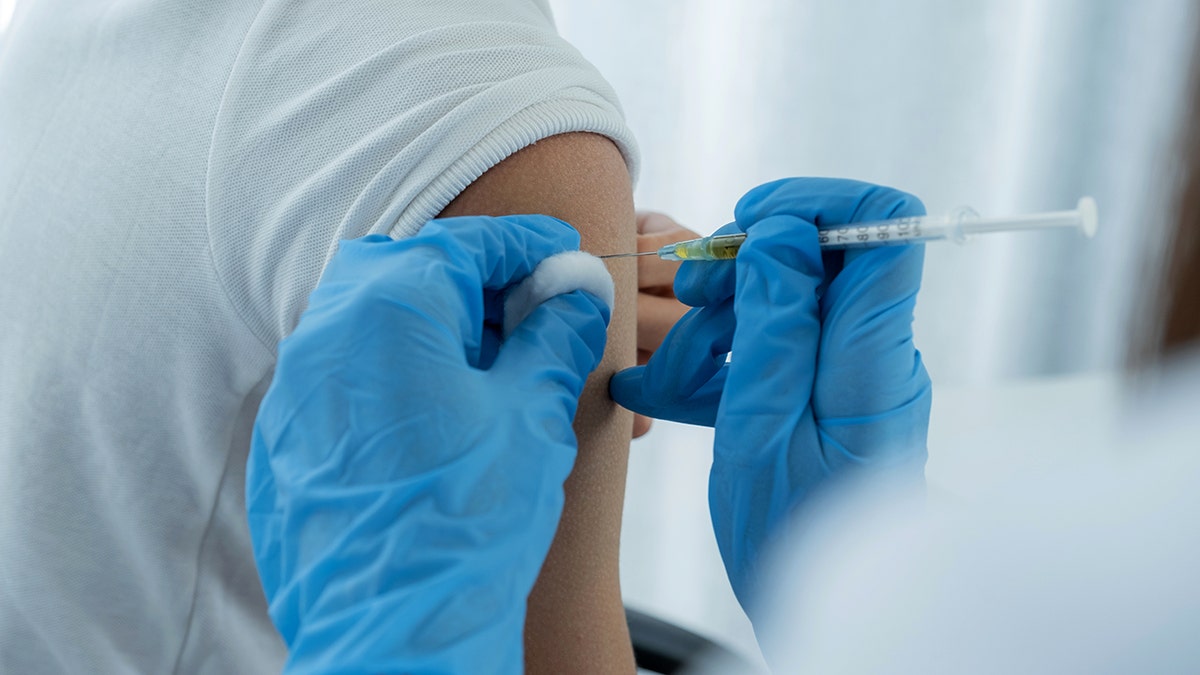NEWYou can now listen to Fox News articles!
This year’s flu season is already raising alarms among public health officials and infectious disease experts.
According to the BBC, the U.K.’s National Health Service (NHS) has issued an “SOS” warning amid growing concern that this winter could bring one of the most severe influenza waves in recent memory.
“This flu season is going to be unusually bad,” Dr. Jacob Glanville, CEO of Centivax, a San Francisco biotechnology company, told Fox News Digital. “Britain is getting hit earlier and harder, with cases triple compared to last year.”
COMMON VIRUSES LINKED TO ‘DRAMATIC’ SPIKE IN HEART ATTACK AND STROKE RISK
Australia reportedly experienced its worst-ever flu season in 2024, a pattern that has often foreshadowed what’s to come in the Northern Hemisphere.
In the United States, early indicators point in that same direction.

Australia reportedly experienced its worst-ever flu season in 2024, a pattern that has often foreshadowed what’s to come in the Northern Hemisphere. (iStock)
Dr. Ravi Jhaveri, professor of pediatrics at the Northwestern University Feinberg School of Medicine and division head of pediatric infectious diseases at Ann & Robert H. Lurie Children’s Hospital of Chicago, said “there are signs of early flu activity in segments of the country,” adding that vaccination rates have continued to fall since the pandemic.
5 THINGS YOU NEED TO KNOW BEFORE GETTING YOUR FLU SHOT, ACCORDING TO DOCTORS
That combination could mean a difficult season ahead, the expert told Fox News Digital, particularly because there appears to be more of the H3N2 strain right now, which can be associated with lower effectiveness of the flu vaccine.

According to the BBC, the U.K.’s National Health Service has issued an “SOS” warning about this year’s flu season. (iStock)
“Meanwhile, the vaccines contain strains that are multiple years out of date,” Glanville cautioned. “They contain a mix of a 2021 strain, a 2022 strain and a 2023 strain. This means the flu shots are mismatched to the virus.”
BEST TIME TO GET THE FLU VACCINE THIS FALL AS INFLUENZA SEASON APPROACHES
The current strain also has a history of producing more severe illnesses and higher hospitalization rates, according to the doctor. Meanwhile, the virus continues to mutate, making it harder for immune systems to recognize.
CLICK HERE TO DOWNLOAD THE FOX NEWS APP
“The flu virus is constantly mutating in small amounts to evade our immune system,” Jhaveri noted, which is the main reason new vaccines are developed each year.
The virus seems to be spreading earlier than usual this year, and researchers aren’t entirely sure why.

The current strain of flu has a history of producing more severe illnesses and higher hospitalization rates. (Elisa Schu/picture alliance via Getty Images)
Jhaveri noted that while the timing of the flu season can vary from year to year, there may now be a shift in how different respiratory viruses interact.
CLICK HERE TO SIGN UP FOR OUR HEALTH NEWSLETTER
“In the past, we used to see flu start to emerge when RSV was past its peak circulation,” he said. “Now that we have more prevention options for RSV, the overall respiratory virus pattern may have shifted.”
It’s still recommended that people get vaccinated, Glanville emphasized, but protection will be “partial at best and worse than normal.”

“Now that we have more prevention options for RSV, the overall respiratory virus pattern may have shifted.” (iStock)
Flu immunity may also be weaker this year. As Jhaveri pointed out, immunity “increases after vaccination and natural infection” but wanes over time, especially in older adults.
Still, based on Australia’s data, “we think the vaccine should offer the usual levels of protection,” he said.
TEST YOURSELF WITH OUR LATEST LIFESTYLE QUIZ
High-risk individuals — including those with chronic conditions, weakened immune systems or obesity, as well as pregnant women and young children — should take extra caution.
“About half the children who die from flu and flu-related complications have no prior risk factor,” Jhaveri noted, emphasizing that vaccination remains “the first step in preventing flu.”
CLICK HERE FOR MORE HEALTH STORIES
For those hesitant to visit a clinic, a nasal spray vaccine was recently approved for either self-administration or for parents and caregivers, allowing families to vaccinate at home, Jhaveri noted.
Glanville’s company, Centivax, is “developing a universal flu vaccine, entering human trials in early 2026,” he added.

